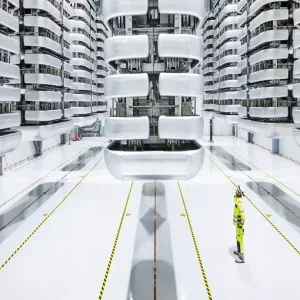Brazil’s development bank says it will no longer fund new coal or oil fired power plants but will increase support for renewable energy projects.
BNDES has released a new set of guidelines in which it says that funding for solar energy will increase and support for wind farms will be maintained. Funding support for hydropower and gas-fired thermal power plants will fall, and it will no longer invest in thermal plants fuelled by oil or coal.
The move has been made in response to Brazil’s efforts to fight climate change, as well as to the country’s economic slump, which, says the bank, means that it has limited resources.
Brazil is one of the first large emerging economies to ratify the Paris climate change agreement, and has set a target of sourcing 23 per cent of its energy from renewables by 2030. “The measures aim to contribute to increase alternative energy sources in the Brazilian power mix, directing investments to projects with high social and environmental returns,” the bank said in a statement.
The banks says it will now provide up to 80 per cent of the financing needed for individual solar farms, up from 70 per cent. It will continue to offer as much as 70 per cent of the financing for wind, biomass, cogeneration and small hydroelectric projects.
It has also pledged to provide more support for energy efficiency projects.
BNDES has arranged almost $25.9 billion in financing for clean energy to date, more than any group or organization in the world, according to Bloomberg New Energy Finance.






